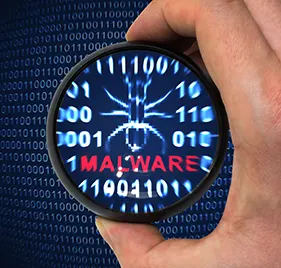Most people have a general understanding of what cybersecurity is – protecting your computer from viruses, hackers, and other online threats. However, there are a lot of misconceptions about cybersecurity that can lead to people making bad decisions about their online safety. Here are five of the most common misconceptions about cybersecurity:
1. Cybersecurity is only for businesses.
2. Cybersecurity is expensive.
3. Cybersecurity is complicated.
4. Cybersecurity is only about technology.
5. Cybersecurity is static.
People think that cyber security is only about technology
One of the most common misconceptions about cybersecurity is that it’s only about technology. This couldn’t be further from the truth. Yes, technology is a critical part of cybersecurity, but it’s only one piece of the puzzle. Cybersecurity is also about people, processes, and data.
Technology alone can’t keep your organization secure. You also need strong security policies and procedures in place, and your employees need to be trained on how to follow them. Even the most secure technology is only as good as the people who are using it.
Data is another important piece of the cybersecurity puzzle. Your organization’s data is a valuable asset that needs to be protected. That means having the right security controls in place to prevent unauthorized access, and making sure that only the right people have access to the data they need.
When it comes to cybersecurity, all of these pieces are important. Technology alone can’t keep you secure, but it’s a critical part of a strong security program.
People think that cyber security is only about protecting data
There are many misconceptions about what cyber security entails. One common misconception is that it is only about protecting data. While data security is a critical part of cyber security, it is not the only aspect. Cyber security also includes things like protecting networks from attack, and ensuring that devices are not vulnerable to exploitation.
Another misconception is that cyber security is only concerned with external threats. While it is true that many cyber attacks come from outside an organization, there are also internal threats that need to be considered. For example, employees may accidentally introduce malware into a network, or they may deliberately leak sensitive information.
Another misconception is that cyber security is only relevant to large organizations. In reality, any organization that uses computers or stores data electronically is at risk of a cyber attack. This includes small businesses, non-profits, and even individuals.
Finally, there is the misconception that cyber security is expensive and difficult to implement. While it is true that cyber security can be costly, it does not have to be. There are many steps that organizations can take to improve their cyber security without breaking the bank.
Cyber security is a critical issue that deserves more attention than it currently receives. Hopefully, by dispel some of the myths surrounding it, more people will be motivated to take action to improve their own cyber security.
People think that cyber security is only about protecting against attacks
Most people believe that cybersecurity is only about protecting digital systems and networks from malicious attacks. However, cybersecurity is much more than that. Cybersecurity is about protecting organizations and individuals from a variety of online threats, including cyber attacks, data breaches, and identity theft. Cybersecurity is also about ensuring that sensitive data is protected and that privacy is maintained.
People think that cyber security is only about preventing breaches
Cyber security is often misunderstood. Most people think that it is only about preventing breaches, but it is much more than that. Cyber security is about protecting your data and information from unauthorized access or destruction. It is also about ensuring that your systems are secure and reliable. There are many factors that contribute to cyber security, and it is important to understand all of them.
Cyber security begins with basic security measures, such as creating strong passwords and using encryption. But it also includes more advanced measures, such as two-factor authentication and malware protection. Cyber security also includes awareness and training. Employees need to be trained to spot potential threats and to know how to respond to them.
Cyber security is an important issue for businesses of all sizes. Breaches can lead to loss of data, reputation, and customers. They can also be expensive to clean up. That’s why it’s important to have a plan in place to protect your data and your business.
People think that cyber security is only about protecting against theft
It's a common misconception that cyber security is only about protecting against theft. In reality, cyber security is about much more than that. It's about protecting your devices and your data from a variety of threats, including viruses, malware, and hackers.
Cyber security is important for everyone, not just businesses. If you use a computer, smartphone, or other digital device, you need to be aware of the risks and take steps to protect yourself. That includes using strong passwords, installing security software, and being careful about what you click on and download.
Unfortunately, even the most security-conscious people can still be vulnerable to attacks. That's why it's important to stay up-to-date on the latest security threats and to have a plan in place in case your device or data is compromised.
